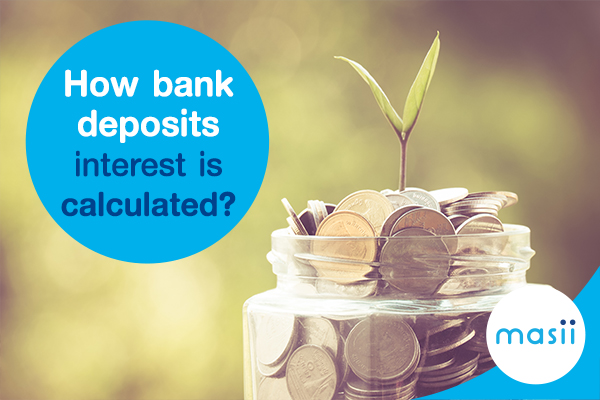
Personal financial planning is one of the key to a sustainable wealth in this fast changing and volatile financial world whereby the bank deposits seem to be a conservative yet efficient way for beginner. Interest rate might be one of the most crucial factor that depositor might look for in depositing their money at the bank. However, there might be some cases that you wonder why the interest rate is too low and whether investing that money in other lucrative investment channels sounds like a better choice. Still curious about interest rate? Here are more details Masii would like to show you:
Different deposit types and its interest rates
The interest rates are varied among banks and types of deposits as follow:
- Savings Account: The interest rate ranges from 0.5% – 1% depending on the bank. The interest is paid twice in the end of June and December. Besides, 15% tax rate will be charged on the interest above THB 20,000
- Fixed Deposit Account: This type of deposit yield higher interest rate than the normal savings account at around 1.75% – 3.5% but the depositor has to deposit the fixed amount every month during a certain period of time from 12 – 36 months. The interest can be paid in 2 types: at the end of the the deposit period or every month where 15% tax will be exempted for the fixed deposit above 24 months.
- Current Account: The interest rate ranges from 0% – 1.5% depending on the bank. The interest is paid twice in the end of June and December. However, 15% tax rate will be charged on all cases.
- Government Savings Bank’s Lottery: The interest rate ranges from 0.5% – 4.75% depending on the holding period. The interest is paid at maturity and the holder can also win a prize from the lottery. However, 15% interest rates will be charged on all cases.
- Government Bonds: The interest rate ranges from 2.7% – 7% depending on the bonds’ maturity where the interest is paid in 2 types: regular basis and accrued basis.
Since the interest rate has become more and more competitive, the arena has shifted that the private bank compete head-to-head with the government bank. The rest is now on the consumer to choose whether which type of deposits suit their financial objective the most.




